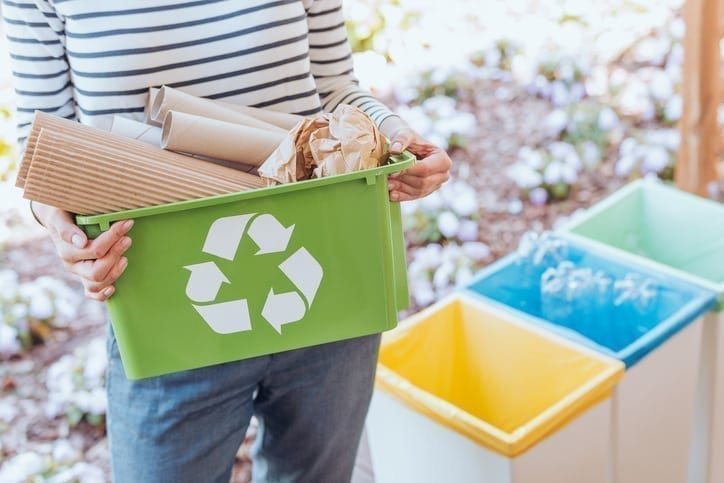While consumers are increasingly interested in topics like ethics and sustainability, it seems that Britain’s men are lagging behind women when it comes to maintaining good environmental habits.
According to research by Mintel, carried out among 2,000 internet users aged 16+ in April 2018, 65% of Brits say they are trying to live more ethically than they were a year ago. But while a conscientious 71% of women are increasing their commitment to ethical living, just 59% of men say they’ve been living more ethically over the past year.
The sense of being ‘in it together’ is reflected by the fact an impressive 61% of Brits say they’re trying to encourage their family/friends to be more ethical. But once again, men (56%) are less inclined than women (65%) to encourage their friends to adopt an ethical lifestyle.
Recycling tops ethical habits
Mintel research also shows that men are markedly less conscientious than their female counterparts when it comes to maintaining environmentally friendly habits.
While overall recycling is the nation’s number one ethical habit (72% of Brits indicate that they recycle all the time), men (67%) are considerably less likely than women (77%) to be committed to regular recycling.
And while the battle of the thermostat continues in Britain’s households, Mintel reveals that women (64%) are more likely than men (58%) to regularly turn down/off the heating when they are not at home.
Other areas of significant male/female ethical contrasts include water conservation, with 30% of men always try to use less water versus 38% of women, and food waste – 27% of men frequently compost food waste compared with 33% of women.
Undermining masculinity?
Jack Duckett, senior consumer lifestyles analyst at Mintel, said Mintel data highlight ‘something of a ‘eco gender gap’ revealing that men are less likely to pursue environmentally friendly behaviours than their female counterparts.’
Jack added that this could simply be a reflection of the fact that, according to Mintel research, ‘many women still tend to take charge of the running of the household, with chores such as cleaning, laundry and even recycling falling under that banner.’
Still, Jack said, there’s ‘clearly a wider disconnect between men and environmental issues, which, more troublingly, could be due to men feeling that caring for the environment somehow undermines their masculinity.’
‘This is certainly a sentiment that risks being reinforced by advertisers, with eco-friendly campaigns and product claims largely aimed at female audiences’, he said. ‘At a time when so many advertisers are exploring what it means to be a man, there are opportunities for brands to create campaigns that will reposition environmentally friendly behaviours as part of modern masculinity.’
 Play Video about This Rock Might Just Save The World
Play Video about This Rock Might Just Save The World Play Video about Play 2 hours of rock
Play Video about Play 2 hours of rock Play Video about Play 2 hours of brook
Play Video about Play 2 hours of brook Play Video about Play 2 hours of sheep
Play Video about Play 2 hours of sheep











































